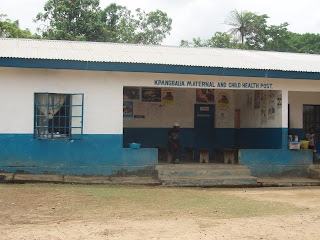“Can you tell which one is your child?” Dora, my World Vision guide and translator, asked me. And as I stared into all of the faces of the children, fearful I somehow would not be able to recognize that face I had so often studied in the picture above my bed, I saw those eyes and that smile and knew it was her.

I don’t know how many of you are familiar with child sponsorship programs, but organizations such as World Vision and Compassion International (both Christian organizations) have monthly giving programs that go to support children living in impoverished areas of the World. Through your $30-40 per month, you provide a child with food, clothing, the ability to attend school, and the opportunity to hear the gospel.
Ever since high school, the idea of providing a child halfway across the world with the tools and foundations to support and enrich their lives in their communities touched my heart. I remember the first child I ever sponsored was with the help of 2 of my high school friends who, through the three of us, gave money each month to support her for over a year before having another person take over her sponsorship. The Lord had put this on my heart even more deeply after finishing university, but it wasn’t until this last July that I finally stepped out and obeyed that call on my heart. The picture above with my little Mattu is evidence of the amazing ramifications of obeying those quiet calls to our heart.
But it wasn’t the noisy, energy filled tribal Mende community welcome dance that impressed me and my dear Mercy Ships friend, Laura Coles, nor was it even the delightful childrens choir that sang to us from the village school. Instead, it was the sheer awe of what such a small amount of money can do for such a large community.

As I said before, our entire trip to visit the World Vision Bagbo site, took Laura and I to a village just outside of Bo, Sierra Leone (about a 3 ½ hour drive southeast of Freetown). After a night in a local hotel (complete with air conditioning, bucket showers, and exploding light bulbs), we were picked up by World Vision staff Dora, Sheku, and Joseph, who would be our drivers and escorts for the day. We made it to the village Kpangbalia over dusty, washed out village roads in about 2 ½ hours, where we were to meet Mattu and her family. As we drove along this road, sign after sign after sign passed by with “World Vision… Well…” or “World Vision Health Center”, or schools and latrines built by World Vision. Village after village had such signs. World Vision quite obviously had a footprint in the community, as was also evident by the friendly waves and yells of “Hello!” and “Opotu!” (“white person” in krio) as we drove by in the white World Vision landrover.

By the end of the afternoon, Laura and I had experienced the fully spectrum of the community tour of the maternal and child health clinic (photo on preivous page), newly constructed school with latrines, 3 wells, and community fish pond (for growing and building an economy within the village). As person after person and group after group stated, sang, or danced their appreciation of us “sponsors”, I felt increasingly overwhelmed. Who was I to claim ANY of this credit with my mere $35 a month sponsorship? I knew I was impacting the life of a child, but I had no idea the ramification of my small contribution. So many sponsors only dream of meeting their sponsor children. I had that dream plus the overwhelming joy of seeing how the small gifts of so many make SUCH a difference. My heart was not prepared to handle the impact this trip would make. So amazing. So amazing.

And, as an “icing on the cake”, so to speak, Laura and I also had the opportunity to find some of our little 8-plate orthopedic children and check up on them! SOOO amazing! We found all 5 of them who lived in Bo. Here we are with two of them and their little bandaged knees! (I am trying to tell Fatmata to smile with her teeth if you are wondering). SUCH a blessing! Oh my gosh! I was SO excited! I am hoping to be able to see them all when I return to Bo in July.

As far as ship life- the hospital continues to run a bit more smoothly each day, and I must say that I am becoming more and more comfortable in my charge nurse position. I still LOVE my patients and find time to play “Waka Waka” music for them to dance to. My dear friend and bunkmate, Laura, will be leaving all to soon, however, as she prepares to fly home the middle of May. My life we be a bit lonelier without her around, but I’ve been so thankful for our time and adventures together.

To close, I want to thank you all SO much for your support and prayers. Just like my experience in Bo, feeling overwhelmed by impact my investment made, I hope you all experience a little of that with each story you read and way you see patient’s lives changed each day. I am SO blessed by you! I don’t even have words. Two letters I received today from home just made my day. I truly could not do it without you- no matter how big or small your contribution. I covet your prayers not only for myself and the patients, but over the entrie ship and country of Sierra Leone. What an amazing opportunity to be used for something so much bigger than us.









